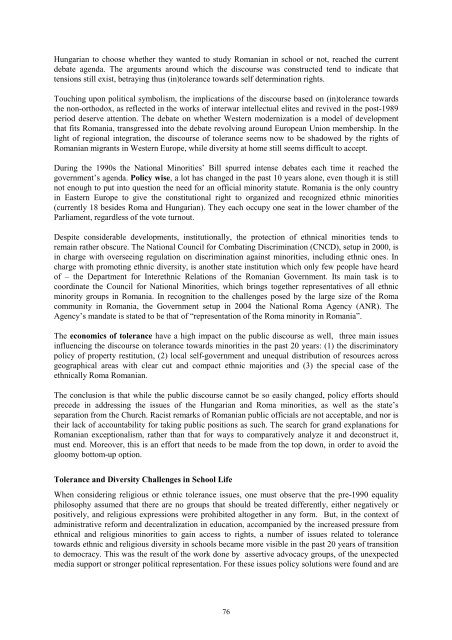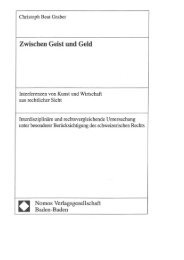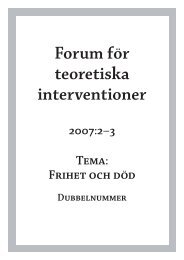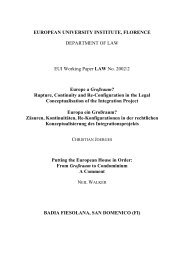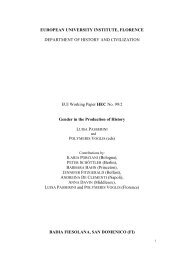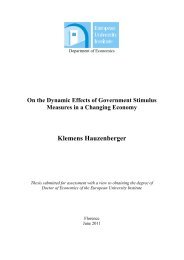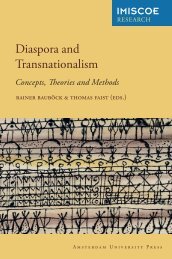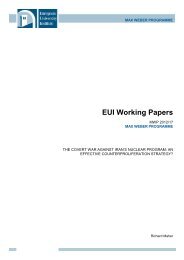Sinziana-Elena Poiana Ioana Lupea Irina-Madalina Doroftei Alina ...
Sinziana-Elena Poiana Ioana Lupea Irina-Madalina Doroftei Alina ...
Sinziana-Elena Poiana Ioana Lupea Irina-Madalina Doroftei Alina ...
Create successful ePaper yourself
Turn your PDF publications into a flip-book with our unique Google optimized e-Paper software.
Hungarian to choose whether they wanted to study Romanian in school or not, reached the current<br />
debate agenda. The arguments around which the discourse was constructed tend to indicate that<br />
tensions still exist, betraying thus (in)tolerance towards self determination rights.<br />
Touching upon political symbolism, the implications of the discourse based on (in)tolerance towards<br />
the non-orthodox, as reflected in the works of interwar intellectual elites and revived in the post-1989<br />
period deserve attention. The debate on whether Western modernization is a model of development<br />
that fits Romania, transgressed into the debate revolving around European Union membership. In the<br />
light of regional integration, the discourse of tolerance seems now to be shadowed by the rights of<br />
Romanian migrants in Western Europe, while diversity at home still seems difficult to accept.<br />
During the 1990s the National Minorities’ Bill spurred intense debates each time it reached the<br />
government’s agenda. Policy wise, a lot has changed in the past 10 years alone, even though it is still<br />
not enough to put into question the need for an official minority statute. Romania is the only country<br />
in Eastern Europe to give the constitutional right to organized and recognized ethnic minorities<br />
(currently 18 besides Roma and Hungarian). They each occupy one seat in the lower chamber of the<br />
Parliament, regardless of the vote turnout.<br />
Despite considerable developments, institutionally, the protection of ethnical minorities tends to<br />
remain rather obscure. The National Council for Combating Discrimination (CNCD), setup in 2000, is<br />
in charge with overseeing regulation on discrimination against minorities, including ethnic ones. In<br />
charge with promoting ethnic diversity, is another state institution which only few people have heard<br />
of – the Department for Interethnic Relations of the Romanian Government. Its main task is to<br />
coordinate the Council for National Minorities, which brings together representatives of all ethnic<br />
minority groups in Romania. In recognition to the challenges posed by the large size of the Roma<br />
community in Romania, the Government setup in 2004 the National Roma Agency (ANR). The<br />
Agency’s mandate is stated to be that of “representation of the Roma minority in Romania”.<br />
The economics of tolerance have a high impact on the public discourse as well, three main issues<br />
influencing the discourse on tolerance towards minorities in the past 20 years: (1) the discriminatory<br />
policy of property restitution, (2) local self-government and unequal distribution of resources across<br />
geographical areas with clear cut and compact ethnic majorities and (3) the special case of the<br />
ethnically Roma Romanian.<br />
The conclusion is that while the public discourse cannot be so easily changed, policy efforts should<br />
precede in addressing the issues of the Hungarian and Roma minorities, as well as the state’s<br />
separation from the Church. Racist remarks of Romanian public officials are not acceptable, and nor is<br />
their lack of accountability for taking public positions as such. The search for grand explanations for<br />
Romanian exceptionalism, rather than that for ways to comparatively analyze it and deconstruct it,<br />
must end. Moreover, this is an effort that needs to be made from the top down, in order to avoid the<br />
gloomy bottom-up option.<br />
Tolerance and Diversity Challenges in School Life<br />
When considering religious or ethnic tolerance issues, one must observe that the pre-1990 equality<br />
philosophy assumed that there are no groups that should be treated differently, either negatively or<br />
positively, and religious expressions were prohibited altogether in any form. But, in the context of<br />
administrative reform and decentralization in education, accompanied by the increased pressure from<br />
ethnical and religious minorities to gain access to rights, a number of issues related to tolerance<br />
towards ethnic and religious diversity in schools became more visible in the past 20 years of transition<br />
to democracy. This was the result of the work done by assertive advocacy groups, of the unexpected<br />
media support or stronger political representation. For these issues policy solutions were found and are<br />
76


